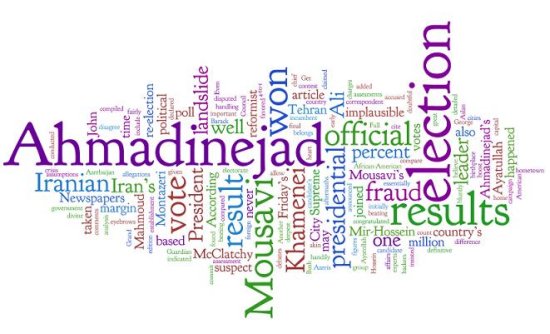Published: may 02, 2010; Intelligence and Terrorism Information Center.
Speak Persian, you’re in Persia: use of foreign words banned in Iranian movie names.
Iran’s government has recently decided to ban the use of foreign words in commercials and on billboards. A letter sent this week by the Deputy Minister of Islamic Guidance on Cinema to the ministry’s official in charge of monitoring and enforcement said that the use of foreign words in the names of Iranian movies would be banned as well as a result of the decision. The deputy minister stressed in his letter that the instruction also applied to movies currently in production (IRNA, April 24).
This joins a series of decisions made by the Iranian government in recent years to strengthen the Persian language in light of increasing concerns over its status. Iranian senior officials and intellectuals have expressed concern in recent years about the ongoing deterioration in the status of the Persian language as a result of accelerated Western penetration and the influence of IT.
In May 2007, Abdolhamid Riazi, the Deputy Telecommunications Minister on Information Technologies, said that the Internet and cellular telephones were the leading instruments of a “cultural oppression” by the West. He noted that the Persian language must be preserved and its usage had to be encouraged also in cellular telephones and on the Internet by adapting the information technologies on cellular telephone networks and in computers to the needs of the Persian language.
In June 2007, a group of intellectuals published a memorandum of opinion warning against the deteriorating status of the Persian alphabet in light of the increasing use of foreign languages in mobile telecommunications and in computers. They noted that for many years, the Persian alphabet was central for maintaining Iran’s national unity and identity, warning that the continuing deterioration in the status of the language was a threat to Persian culture and the Iranian nation. Shortly thereafter, Iran’s vice president issued a decree requiring all official bodies to stop using Persian in Latin letters (“Pinglish”) and use the Persian alphabet for text messaging. The decree ruled that sending text messages by various government bodies, including the broadcasting authority, to private users using the Latin alphabet “hurt Iranian culture and the Persian language”. Accordingly, organizations and government companies were required to send text messages only in Persian.
In September 2007, the Islamic Guidance Ministry announced its intention to ban the use of Latin letters on billboards in the city of Tehran. Ali Reza Karimi, the director of the Public Relations Division in the Islamic Guidance Ministry, announced that the ministry intended to establish a headquarters to monitor the use of Latin letters and “incorrect, meaningless names” on advertisements placed on businesses. Karimi noted that advertisement signs had to adhere to proper grammar corresponding with the Iranian Islamic culture. In addition, Karimi noted that his ministry also intended to ban the use of Latin letters on bags, shoes, and writing utensils for students.
The fight to encourage the use of Persian was also reflected in the Telecommunications Ministry’s early 2008 decision to increase the cost of text messages sent in Latin letters while reducing the cost of text messages sent in Persian letters.



 RSS
RSS














Use of Foreign Words Banned in Iran society #iran #islam http://j.mp/cGeujq
RT @CrethiPlethi: Use of Foreign Words Banned in Iran society #iran #islam http://j.mp/cGeujq
[…] This post was mentioned on Twitter by Elisabeth, Crethi Plethi. Crethi Plethi said: Use of Foreign Words Banned in Iran society #iran #islam http://j.mp/cGeujq […]